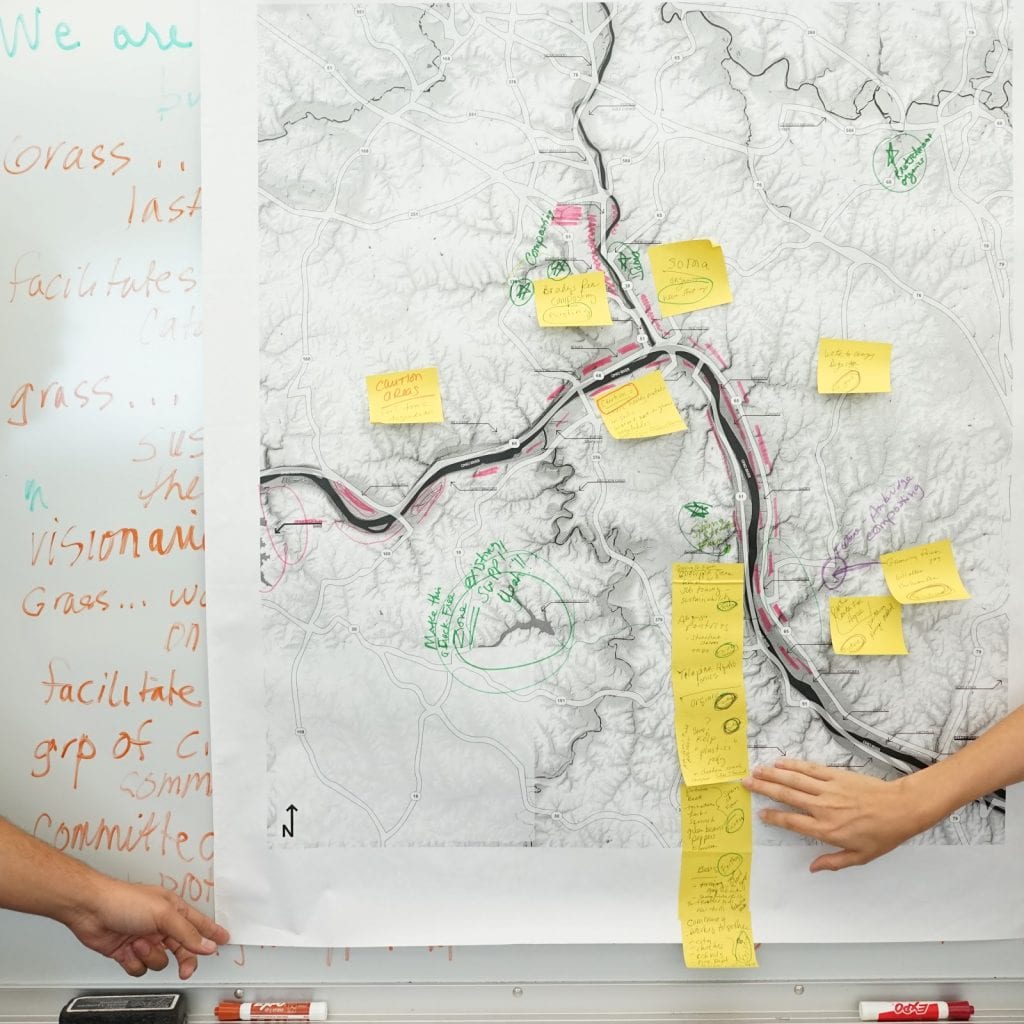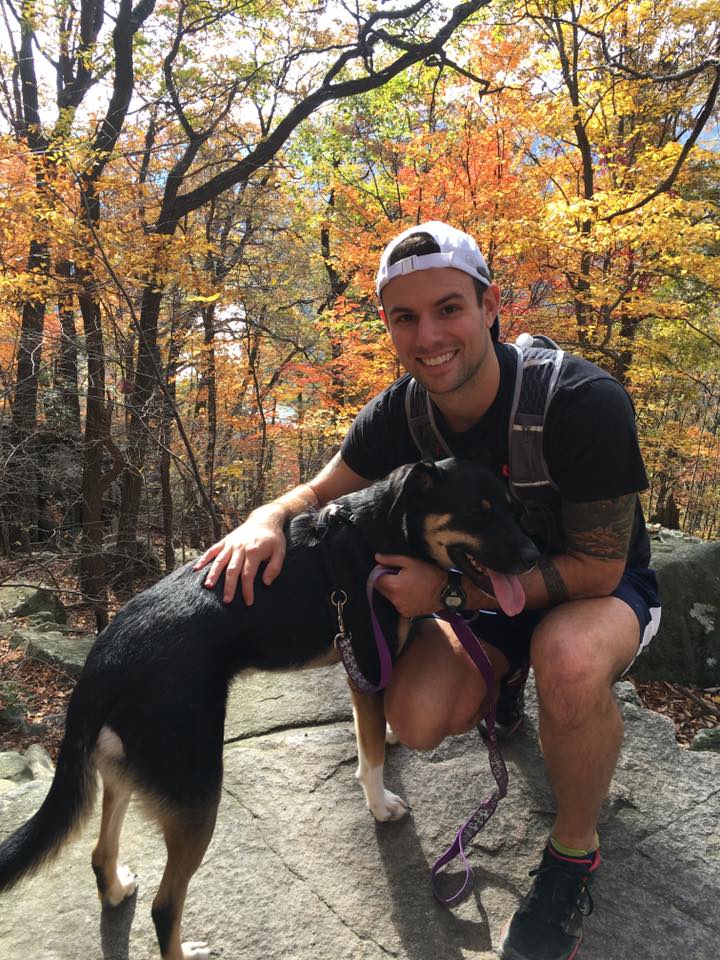Hello everyone! I’m Connor, the K-12 Social Justice Educator and Project Support Coordinator. I’m an MSUS student with interests in environmental justice and transitions to sustainability. I first became interested in environmental issues while studying photojournalism in undergrad after seeing a professor’s documentary work on communities impacted by unconventional natural gas development. I began to seek out similar stories to tell with my camera but wanted to learn more about environmental issues, their social impacts and what can be done for them. These questions led me to Chatham, where an internship gave me the opportunity to find the answers.

A photograph I took while freelancing for PublicSource of residents of Jeannette, PA at the natural gas well across the street from their home.
Reimagine! Beaver County is a grassroots community organization that gathered community members over the past couple of years and asked them what kind of development they would like to see in their communities. Attendees to their workshops were asked to think big, and they delivered cutting-edge ideas such as eco-industrial parks and solar electric car infrastructure, with a broad focus on developing energy, green chemistry/manufacturing, agriculture and recreation/tourism sectors. Part of my job with Reimagine is figuring out how Beaver County can begin to turn those ideas into reality with the resources currently available in the county. The first requirement is interest, and as we saw in Reimagine’s workshops, there’s a clear widespread desire for sustainable development in Beaver County towns like Aliquippa, Beaver Falls and Center Township. A need for jobs is also important, and is evidenced by other development in the area. A third critical element is the ability to create meaningful partnerships for achieving the shared community goals. For example, partnerships with higher education institutions or labor unions can help develop a workforce to meet the needs of proposed development, like eco-industrial parks.
The goal of all this effort is to create a green, diversified local economy and do so equitably. Some rural and semi-urban towns in Pennsylvania such as Connellsville and Monaca have begun developing around sustainable business models and enacting sustainability policies, proving big cities aren’t the only places that can be sustainable. On our new Rural Economic Development tab on our resources page, you can find key information on the subject such as the UN’s decisions and recommendations on the matter, guides on developing sustainable counties and towns, and tools to help you support local solar and agricultural businesses. For teachers and students, an all-grades explainer on hydraulic fracturing from Science Friday can be found, along with links mentioned in the explainer on classroom activities such as a board game centered on the concept of ecosystem services.
My hope is that these resources can be of use to students, teachers and lifelong learners in understanding the options and possibilities that are available to rural parts of the country. Although resource extraction and related industries have provided for Southwestern Pennsylvania and Appalachia for hundreds of years its social, environmental and health impacts have shown a need for transition. As I continue to study transitions toward sustainability at Chatham I’m available to mentor classes on Project Based Learning (PBL) units focused on rural economic development and sustainability. Topics can range from connecting communities to parks and trails, to developing cultural resources and art projects, to reconnecting communities to food systems. I look forward to learning with you!

